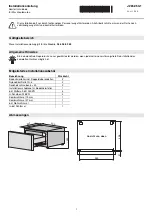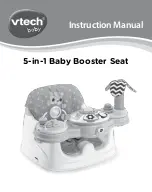
w w w . f u l l w a t . c o m
LP803450-CI
•
Polymer Lithium-ion battery
Cautions of charge and discharge
Charge
Charging current should be lower than values that recommended below. Higher current and voltage charging
may cause damage to cell electrical, mechanical, safety performance and could lead heat generation or leakage.
1. Batteries charger should charging with co n s tant current and constant voltage mode.
2. Charging current should be lower than (or equal to) 1C
5
A.
3. Temperature 0~45ºC is preferred when charging.
4. Charging voltage must be lower than 4.25V.
Discharge
1. Discharging current must be lower than (or equal to) 2C
5
A.
2. Temperature -10~60ºC is preferred when discharging.
3. Discharging voltage must not be lower than 2.75V.
Over discharge
It should be noted than the cell would be at an over-discharge state by its shelf-discharge. In order to prevent over-
discharge, the cell shall be charged periodically to keeping voltage between 3.6-3.9V. Overdischarge may cause
loss of the cell performance. It should be noted that the cell would not discharge till voltage lower than 2.75V.
Storage of polymer lithium-ion batteries
• The battery should be stored with 40-60% charge state.
• The environment of-long time storage.
• Temperature: 20±5°C.
• Humidity: 45-85%.
• Batteries were 40~60% charged.
• The battery had better charge a time per three month during its storage for avoiding over discharge.
• Please charge the battery with constant current 0.5C
5
A for 1 hour once every three month when is storage so
that it has some storage of charge for properly using.
• Charge and discharge afresh to active and renew battery energy after storage above 1 year.
Transportation of polymer lithium-ion batteries
The batteries must be transported with 10~50% charged states.
Others
Please note cautions bellow to prevent cells leakage, heat generation and explosion.
1. Prohibit disassembled cells.
2. Prohibit immerse cells into liquid such as water or seawater.
3. Prohibit dumping the battery into fire.
4. Prohibit soldering directly the battery.
5. Prohibit charging the battery near fire or in the hot circumstance.
6. Prohibit place the battery in a micro w ave oven or pressurized container.
7. Prohibit use or store the battery where is exposed to extremely hot, such as under window of a car in directly
sunlight in a hot day. Otherwise, the battery may be overheated. This can also reduce battery performance and/
or shorten service life.
8. If the battery leaks and electrolyte gets in your eyes, don’t rub them. Instead, rinse them with clean running water
and immediately seek medical attention. If left as is, electrolyte can cause eye injury.
9. Prohibit using the battery if it gives off an odor, generates heat, becomes discolored or reformed, or appears
abnormal in any way. If the battery is in use or being recharged, remove it from the device or charger immediately
and discontinue use. If the battery leaks or gives off an odor, move it away from a fire source to avoid fire or explosion.

























